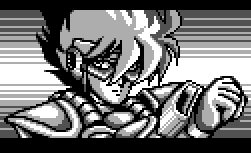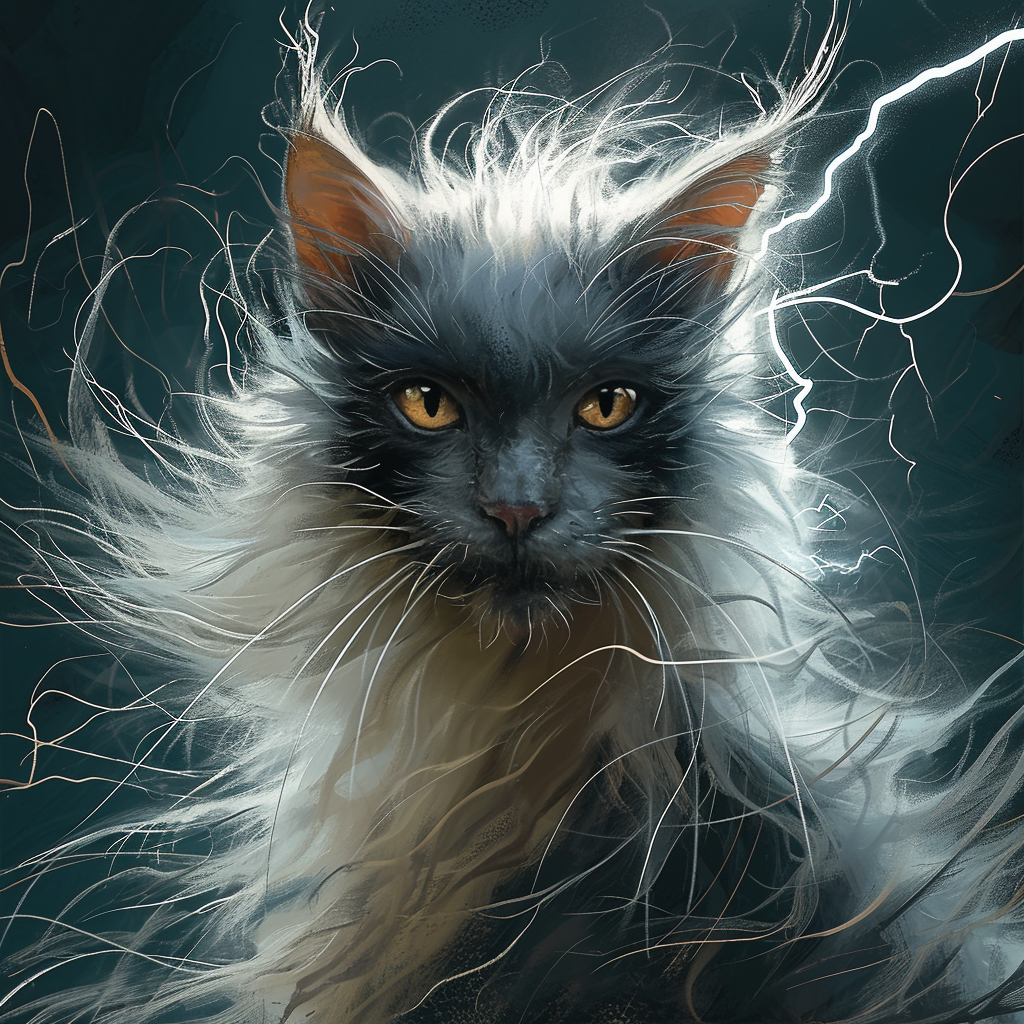I was trying to think of which games created certain mechanics that became popular and copied by future games in the industry.
The most famous one that comes to my mind is Assassin’s Creed, with the tower climbing for map information.
Slay the Spire spawned a ton of deck builder roguelites.
Without which we wouldn’t have the only true deck builder roguelite, Rogue Light Deck Builder.
First thing that came in to my mind was Gears of War with its specific third person view and hiding behind covers. I don’t think it was the first game with that mechanic but the most influential one
Operation WinBack from 1999 is considered the first third person cover based shooter.
This is true but Gears popularised it
Showing my age here, but what’s the difference between hiding behind cover in Gears of War vs what we did in LAN parties for UT or Wolfenstein 3D?
Snap to asset change camera angle Vs jiggle peak
This game is a broken buggy mess but in a good way
The term I refer to is “hiding behind cover” singular - so when I hear “hiding behind covers” I think of the COG seeing locusts, getting scared, and wrapping themselves up in blankets. Lol
when I hear “hiding behind covers”
Operation Blanket Fort
Third person view in an FPS (first person shooter) type of game was first seen in the first Lara Croft game, I think?
If you are attempting to ask which game popularized 3d, third person shooters, then yes, the original Tomb Raider is probably the most early, widely popular game that popularized this.
I think you need to be more specific than just “third person”. Third person view was in Pong, Pac-Man, Asteroids, Centipede, etc. It’s the default for most games.
First person was probably introduced with Battle Zone.
Which, I don’t mean to sound pedantic, I just literally don’t really know what you mean here.
Your examples are of bird’s eye view games, not third person.
Then you will need to extend that to the OP of this comment chain as they didn’t specify either what Gears of War is. I am going to edit my comment to clarify but I do feel you are too pendantic for asking this.
Thank you. Sorry. Never played that game and didn’t know that was specific to FPS. I know some arcade shooter games had that mechanic, but not in the context of free-roaming FPS. I think you’re right about Tomb Raider.
Donkey Kong (1981) popularized having different levels in a game to progress a storyline. Until then, you would have the same level over and over with increasing difficulty
Battlefield 1942 always stands out to me as the one that popularized large scale online battles on big maps with vehicles. At the time it was revolutionary in online gaming.
Command & Conquer: Renegade came out around the same time as well, with similar features. I kinda wish that game had a sequel as well.
Another gameplay feature that comes to mind is the exclamation/question mark above NPC characters for quests. I remember it first from WarCraft 3, but I think it really kicked off with World of WarCraft to get adopted by many more games.
Was it the first to allow you to look on the map to choose where you respawn, specifically on teammates?
Battlefield 2 intruduced that one.
deleted by creator
I don’t remember being possible to spawn on teammates in BF1942, but definitely remember it as a first to select spawn points on map like Battlefield always did.
I remember an old BF1942 mod that had spawn selection; I don’t know exactly how far back the feature went, but it was around for a while before BF2.
desert combat? that was the shits
I can’t remember if that mod had squad spawns. But I definitely remember playing it a lot, that was an absolutely revolutionary mod with so much content, not to distract from other great BF1942 mods though. I believe the original DICE team originated from that mod team to create Battlefield 2 as well.
DICE hired a few of the DC devs to work on BF2, then promptly laid them all off about 6 months or so after release, and then the laid off devs and others who weren’t hired made Kaos Studios, and made Frontlines: Fuel of War and Homefront, before being corporate acquisitioned into non existence.
There were a few BF42 mods that, on certain maps with certain vehicles, allowed you to spawn in vehicles.
IIRC, Forgotten Hope had a number of para-assault maps that allowed players to spawn inside of the aircraft they would parachute out of.
I believe you could also do this in… I can’t remember the name of it, but the Star Wars themed 42 mod (which the BattleFront series either largely copied or was directly inspired by), I think it had some spawn-in-able vehicles as well.
Also BF Vietnam, the official game, used a similar concept of having ‘tunnel exits’ that could be built/placed by Viet Cong engineers, which were placeable spawn points, and the US had the ‘Tango’ … mobile river boat with a helipad thing… which was a mobile spawn point.
I am 99% sure it was BF2 that first introduced being able to spawn on a player, I don’t think any of the mods for the earlier games pulled that off always had to be a vehicle or placeable static object.
Battlefield 2142 had that, don’t know it that was the first one to do that though. Might’ve been BF2.
I can confirm that you could pick spawn points in BF2 and BF2142.
I’m not sure I’ve ever had more fun with any game than I did with BF1942. It was just so much fun. There were games with smoother play and deeper mechanics and better graphics, but none were as fun. The dumb mechanics made it amazing, like being able to lie down on the wing of a plane and snipe people while your buddy flew, or dive bombing and parachuting out at 10ft above the ground to capture a point, or shooting the main cannon from a tank into a barracks that has 15 people spawned inside it, or piloting a goddamn aircraft carrier and running it aground to get to a spawn point safely. It was so stupid but so fun.
Renegade was some of the most fun I ever had in a shooter. Truly a unique experience
Ocarina of time, 3d, lock on, one enemy attacks at a time. So much of modern gaming pulled from ocarina of time
The fact they used Navi to do the targeting really demonstrates how the devs felt they needed to explain the new mechanic and not just use it ‘because game.’
I know the “hold a button to lock-on to an enemy” was in Mega Man Legends, but in the first game you had to stand still for the lock to work. On MML2, you could lock and run around freely, but that game came after OoT
Oh wow, did Zelda really make this popular? I wouldn’t have guessed. I’ve play it a ton.
Though it was used in a few games before, a Quake tournament and Half Life 1 cemented the use of WASD controls.
ESDF is the superior keybinding
It’s such a pain remapping controls on every. single. new. install.
But it’s worth it. Fuck wasd
it’s one key over, is it really swear-word level different?
If naughty words cause you a level of righteous indignance, my recommendation is to abstain from online activities until one reaches the age of majority
Asdf is just better for general key availability imo
Esdf requires more dexterity and is generally less accessible.I’m an idiot and misunderstood which key bind was being talked about
Been RDFG since about 2002. One of my roommates in college was in the top thousand on Unreal Tournament. He talked me into it. God, I get good at that game playing against him.
I remember using wsad on an ascii graphics game I played back in 85 or so. I think it was called dungeons and dragons, but was not made by tsr. Larn, hack, and Moria were all similar games but I did not play those until later.
yeah HL definitely was the one popularized it as default. quake players changed the bindings for it; i know because i played that game with old-school doom/duke controls
Bullet time was popularized in max payne.
And perfected in The Specialists!
Maybe cheating a bit but there are several genres of games that are named after the games that popularized their mechanics such as roguelike/roguelite, souls-like, metroidvania
Minecraft for the fully breakable/buildable procedural open world.
Minecraft is far more responsible for the survival crafting genre that followed in its wake.
Minecraft Hunger Games, although a mod, is responsible for the Battle Royal hype aswell.
So Minecraft caused Fortnite twice - once as a survival crafting and building game and then as a Battle Royal retaining some of these elements
What’s the timeline on that mod versus the Battle Royale mod for DayZ? Because as far as I could tell, the DayZ mod is the true progenitor, but DayZ was itself inspired by Minecraft.
I couldnt find a release history for the Minecraft mod, however according to the following article, it was released about a year before the original PlayerUnknown mod for DayZ / Arma 3.
Warning: Cant decline cookies (at least in EU)
https://www.eurogamer.net/before-fortnite-and-pubg-there-was-minecraft-survival-games
It was more a server side plugin than a mod, but that only grew its popularity.
Even randomised loot existed around the map
I miss u bukkit ;-;
Day Z the standalone game was a result of Day Z the mod for Arma 2.
While Day Z (the mod) and Minecraft were in their early phases around the same time (i alpha tested both), I have never heard anyone say that Day Z was inspired by Minecraft, beyond the idea of it being possible for an indie game with a small development team being able to become a huge commercial success.
Pretty sure the actual hunger games movie had more to do with that
As the inspiration yes. But Minecraft hunger games was the first to do it in gaming while also reaching maybe not more people than the movies, but definitly spreading to communities that the movies and books didnt reach (e.g. i didnt watch the movies until well over ten years after I had played my first game of MC hunger games)
I miss MC Hunger Games servers. Are any still around?
Also Mindcrack UHC, not sure if that came before the hunger games mods tho
Mario 64 definitely paved the way for most of the 3D platformers of the 21st century
I’d give that to Tomb Raider but both are exceptional.
I don’t think it’s just “being 3D”. Mario 64 put a lot of R&D into particulars of how jumping should work, the camera should work, and what the player’s goals should be. Quite a few games unintentionally copied them, while you could see some games not following their lead early in the 3D days that felt very janky to play. Tomb Raider could arguably be among them with the tank controls, though of course it has its own more niche appeal.
Legend of Zelda OoT followed up with popularizing a targeting button (good ol’ Z-targeting) to focus on one object or enemy in a 3D space and move around it or fight/otherwise interact with it. Such targeting has been a standard feature of 3D action-adventure games ever since.
If you want to talk about “how do I get up there” in a 3d environment, Doom did it before TR.
It would be a real stretch to classify doom as a platformer.
And it’s a bad one if it applies at all. PC shooters of the time always kinda tried, but it didn’t work. The original Half Life got dinged a few points in original reviews because of a few janky platforming sections.
Mario 64 figured out applying analog control to 3d platformers which changed the whole genre, though.
The original XCOM is the source of grid based inventories.
Star Control 2 is the first RPG that did the standard dialogue interface where you talk to someone and choose from multiple replies.
Idk, I think this game already had a grid base inventory: https://de.m.wikipedia.org/wiki/Das_Schwarze_Auge:_Die_Nordland-Trilogie
April 1992.
Man, that’s some good memories.
Yazinda, Durin, Arva von Harben, Tjalf, Melina and Caldrin, I miss you guys.
SC2 did (or did the first mainstream) implementation of a bunch of things, but I’m surprised it was the first for this.
Batman: Arkham Asylum’s free-flowing combo system was copied by many future games.
And unfortunately, not one of them did it better.
The Spider-Man games come close, but that first Arkham game was just so well done
They might be closest, but they’re still pretty far off. One of the core pillars of Arkham combat is that it would punish you for button mashing by dropping your combo, meaning you not only gain fewer points at the end of combat but also lose access to your instant finishers, which are all too valuable for taking out the toughest opponents. Spider-Man is happy to let you mindlessly mash, and it’s far worse off for it.
Might just be because I’m just starting out, but Spider-Man’s combat is much more punishing for me. Could just be the higher emphasis on using specific combos on certain enemies, which I have some difficulty keeping straight.
i think Shadow of Mordor did actually. the system was pretty similar but it didn’t feel as magnetic, which is an improvement.
I did like the magnetic nature of Arkham, and since Mordor lacked it, they let you hold your combo streak for longer, which also made it too easy.
yeah i don’t care so much about ease, i care about how it feels. Arkham’s combat was fun, but the insane distances you could instantly travel made it feel like the game was playing itself. mordor’s solution is better imo. but it obviously comes down to personal preference.
I felt it was more about the “free flow” in the free flow combat system in Arkham. You want it to all chain together, and Arkham made sure you only hit the buttons you needed to exactly as many times as you needed to. Mordor let you keep your combo going even though it had been like 10 seconds since the last time you did anything, which wasn’t exactly flowing at that point. That combo system was a great fit for Batman, and it would fit in nicely with Jason Bourne or John Wick as well, and I’m not sure Lord of the Rings was the best fit for it, but it doesn’t seem like many are trying to do that combat style anymore.
I always feel like Prince of Persia: Sands of Time got there first.
I think Spyro was the first mainstream game to standardise achievements, you could do random stuff in-game and it gave you a little pop up, carried over to Ratchet and Clank and now every game has official achievements
I think Spyro was the first mainstream game to standardise achievements, you could do random stuff in-game and it gave you a little pop up
Which one did that?
I believe the very first one had skill points that unlocked an extended ending and game art.
This. They were indeed called Skill Points, and Insomniac loved to tie cheats and bonus material to completing them. I played the shit out of Spyro and Ratchet and Clank back in the day.
Actually introduced in Ripto’s Rage. The Reignited version backported them to the first game, though.
Not the first one on the PSX, that’s for sure. Also, getting some extra stuff for 100% a game wasn’t new by the time of Spyro, both Donkey Kong Country and Crash Bandicoot already did that
Mortal Kombat for the Genesis did that though. Every once and a while on good hit, little dude would pop into the corner and call out, “Toasty!!”
Really makes you feel like you achieved something great
Just a heads up that I think you replied to the wrong comment in the chain
Some like heads up but I far prefer butts up
CoD and Assassin’s Creed popularised selling the same fucking game 20 times
FIFA and other sports games as well
Sports games have been doing it faaaar longer. Madden started in 1988, released a sequel in 1990, then hasn’t missed a year ever since. The baseball and basketball counterparts existed just as long.
Quake revolutionized fps games
Ape Escape was the first PS1 game to require the dual shock controller
I’d argue that quake did far more for 3D graphics then it did for FPS. Like Doom is what got FPS into the spotlight even though Wolfenstein 3d came first. Like quake is pretty much what made real 3D possible and doable on the hardware of the time thanks to everything going on under the hood
Absolutely, we didn’t even have any special graphics cards at the time for 3D, I believe? I remember that started some time around Quake 2 but I am not sure, I might remember wrong.
This is correct. I remember running Quake II in software mode with hardware effects (could that have been OpenGL already?). It ran at like 1 frames per second, because I didn’t have a 3D graphics card. Although the lighting looked lovely when you shot a rocket through a hallway.
While I don’t know much about video cards, the IBM Monochrome Display Adapter (MDA) is often called the first video card and had a couple of contenders for first that were either designed earlier or released at almost the same time in 1981 and were all for displaying text only. The first GPU card sold to the public was the GeForce 256 in 1999. I’m assuming there’s some in between that were not really used by the public that would have been used in movies and whatnot.
The reason why nobody was selling GPUs before Quake was because quake was THE first 3D game. Doom and other games before Quake were 2.5D and didn’t have 3D models only sprites. Games before Quake essentially mimicked 3D while Quake IS 3D
The first GPU card sold to the public was the GeForce 256 in 1999
3dfx cards like the Voodoo and Voodoo2 were 3d accelerators that predated nVidia’s offerings.
And even from nVidia themselves, the Riva TNT was a GPU released before the GeForce models.
Ohhhh! I think the Riva TNT (or Riva TNT 2?) was my first 3D accelerated graphics card! What a time to be alive was that.
The first PC that I bought myself has a TNT2 with 8mb of memory. I upgraded it some time later with a GeForce 2 and the difference was shocking.
I remember having a GeForce 2 as well. Yes, I was really into graphics at that time. :) Ever since Wolfenstein 3D, or DooM, to be honest.
Colored lighting in Unreal for the first time!
Did you have dreams of DooM back then? I remember opening doors in DooM with that iconic sound in my dreams, lol.
The term GPU wasn’t used yet. It got applied as something of a marketing term to cards that had hardware transform and lighting, and that was indeed the GeForce 256. Before then, they were “3d accelerators”.
You can see this on the Wiki page for the GeForce: https://en.wikipedia.org/wiki/GeForce_256#Architecture
GeForce 256 was marketed as “the world’s first ‘GPU’, or Graphics Processing Unit”, a term Nvidia defined at the time as “a single-chip processor with integrated transform, lighting, triangle setup/clipping, and rendering engines that is capable of processing a minimum of 10 million polygons per second”.
So it kinda depends on perspective. If you take Nvidia’s marketing at face value, then the GeForce 256 was, indeed, the first GPU. You could retroactively apply it to earlier 3d accelerators, including the SNES Super FX chip, but none of them used the term at the time.
At that point, what even is the purpose of defining it? It’s such a specific term that was designed to only apply to their hardware. It’s like creating a new word for a car because you added air conditioning to it.
Sure, they had the first GPU because they coined a term that only applied to one specific product.
The first GPU card sold to the public was the GeForce 256 in 1999.
No it wasn’t. Rendition had the Verite back in 1996 that was true 3D and 2D on the same single video card. At the same time as the Verite was the 3DFX Voodoo (released 1995), but it was 3D only and needed a second card for 2D. Rendition was also the only 3D accelerator natively supported by Quake.
Nvidia did indeed market it as the first GPU at the time. You can retroactively apply the term, but it didn’t exist before then.
https://en.wikipedia.org/wiki/Graphics_processing_unit
Sony coined the term GPU in 1994 for what was in the Playstation.
Nvidia might have marketed it as the first GPU, but other companies had combined 2D/3D processors on a single chip marketed to consumers well before the GeForce, including Nvidia themselves with the Riva 128. The GeForce was the first product from Nvidia marketed as a GPU, but that doesn’t mean it was the first product to market that was either called a GPU or not called that but still was one. It WAS the first to market with a T&L system (though Rendition had T&L on a chip first it never made it to market).
And then there was the Quake 2 engine which gave us Deus Ex, American McGee’s Alice and then (through the modified GoldSrc version) Half-Life, Counter Strike and countless others! The family tree of 3D engines is really interesting.
and the Unreal engine which gave us I don’t have any idea how many but just a staggering number. Both solid games on their own, but long-term the engines were the real rock stars
That may be what I was thinking of. I actually never played Quake, I just knew it was groundbreaking



















